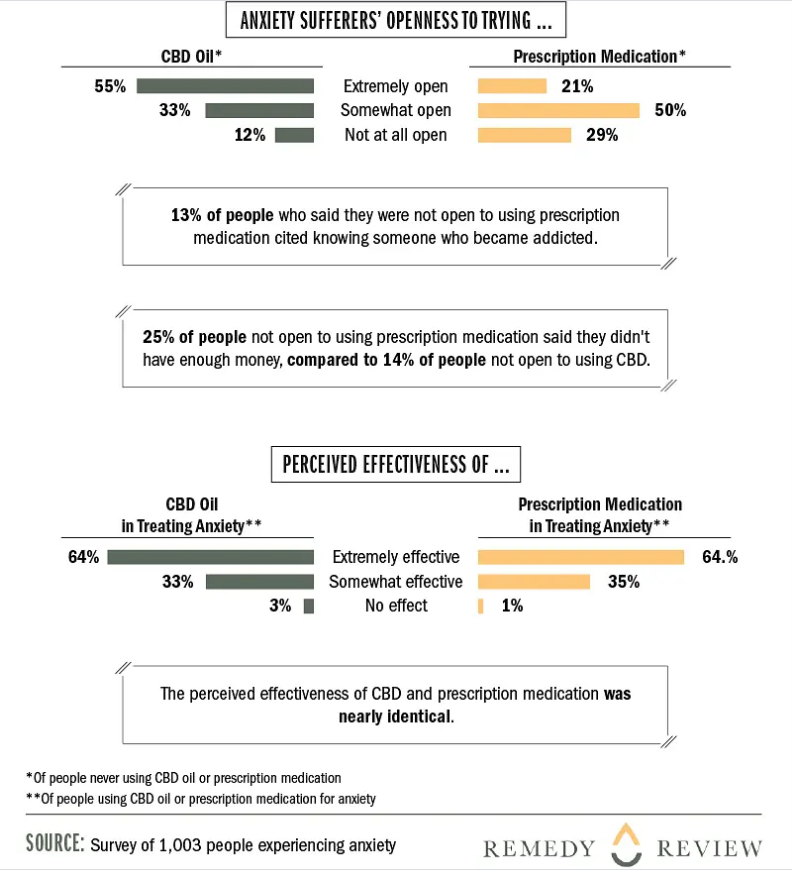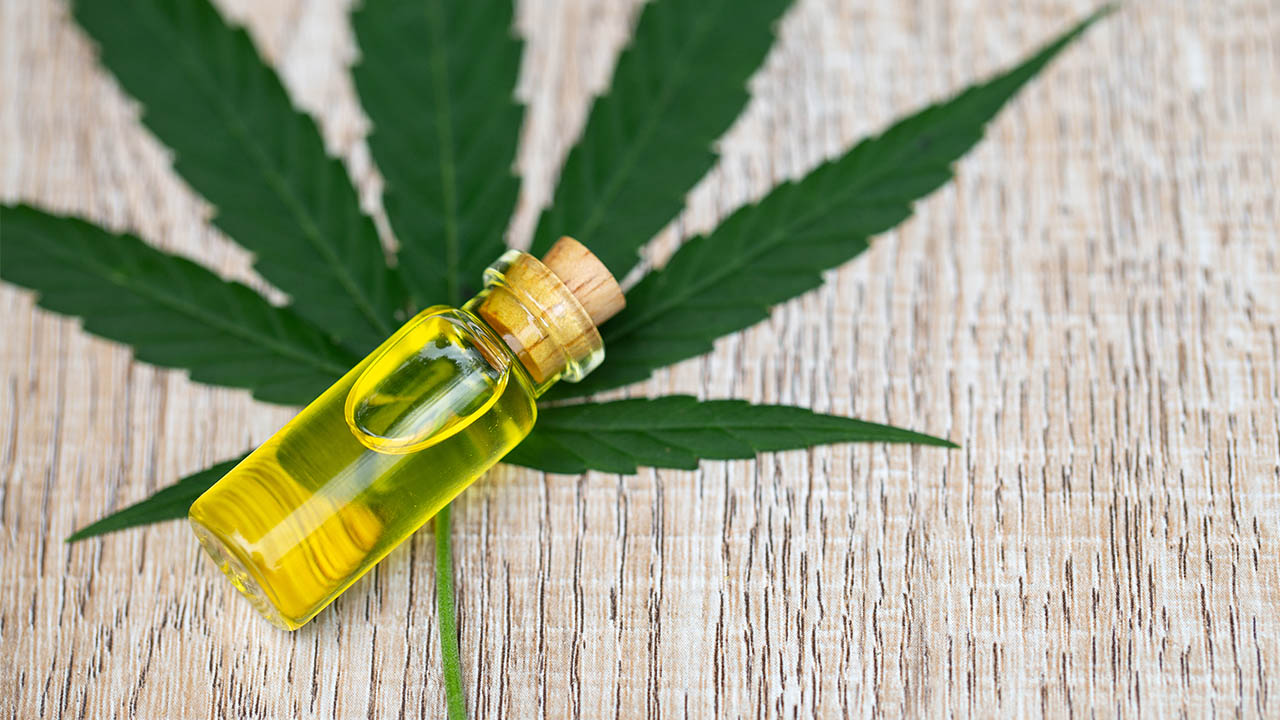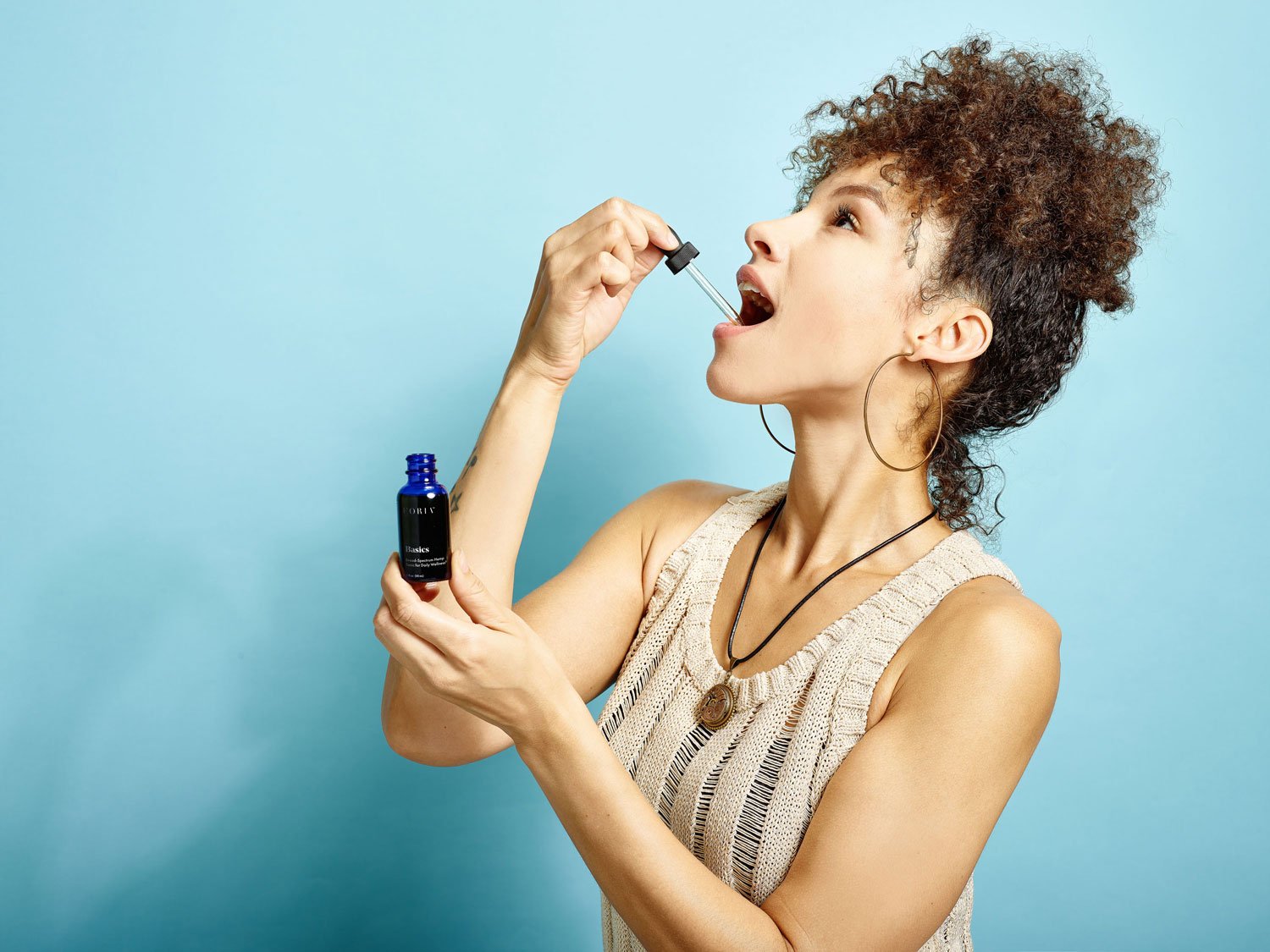CBD oil for anxiety? Can it really help? Although we need more studies to fully understand CBD’s potential for helping with anxiety, there’s a growing body of clinical research showing CBD may be as effective as prescriptions drugs. In this article, we’ll take a look at some of these studies to understand where the science on CBD stands so far, and look at how CBD reduces anxiety levels in the body. We’ll also look at how patients using CBD for their anxiety are reacting to their treatment.
Anxiety Sufferers Are Not Alone
The sad fact is, anxiety disorders are more prevalent than most people realize. According to World Health Organization figures, approximately 1 in 13 people suffer from anxiety worldwide. For those living in the US, that number is significantly higher. The National Institutes for Health report that about 1 in 4 Americans will experience some sort of anxiety disorder during their lifetimes.
Anxiety is no laughing matter. In severe cases anxiety can be debilitating. For most, symptoms like shortness of breath, a pounding heart, anxiety sweats and spiraling negative thoughts would be unpleasant enough. But, when you experience those daily, it can make living a normal life extremely difficult.
A big problem for people who suffer from serious anxiety issues is that many current medical options like Zoloft, Xanax, Prozac, Klonopin and others can be highly addictive. Klonopin, for example, has the potential for inflicting serious, dangerous withdrawal symptoms. In fact, The American Addiction Centers warn that quitting the drug too quickly, rather than gradually, could set off “potentially fatal seizures or a coma.”
Though prescriptions drugs of this type can prove effective, they can also be very expensive and come with a host of side effects such as nausea, lack of energy, anxiety, insomnia, headaches, weakness, impotence, depression, disorientation and more.
These are the kinds of risks that turn people off of drugs and sets them to seeking out a cheaper, more natural option.
CBD was legalized in Canada and the US in 2018. As a result, serious research has recently begun into whether CBD can be that natural option. However, it’s still early days. Much more research needs to be done to fully understand how CBD works, and its potential. That being said, early results do show promise.
How Do People Perceive CBDs Effectiveness For Anxiety?
You can find many bloggers on the web singing CBD’s praise. There’s also mountain of anecdotal evidence that CBD works in the form of online product reviews and testimonials. There has even been a bit of formal research into how people feel about using CBD for anxiety. In 2019 Remedy Review surveyed of over 1,000 people. The main question was whether they felt CBD was as effective for treating anxiety as prescription drugs. 
The results were quite encouraging. Of the 1,000 people in the study, 64% reported they found CBD was “extremely effective.” Pharmaceutical drugs scored higher, but only by a tiny fraction: 64.5% reported pharmaceuticals were “extremely effective” for their anxiety. That’s a difference of just 0.5%.
This means people felt CBD was “extremely effective” over 99% as often as prescription drugs. A pretty favorable comparison.
But, CBD’s greatest benefits may well be its price and lack of unwanted effects. CBD typically costs much less than drugs. Plus, it doesn’t cause addiction or serious side effects.
As the graphic on the right indicates, high cost and addiction risks were serious concerns for those participating in the study.
CBD For Anxiety. How Does That Work?
CBD appears to work through a variety of different pathways including stimulation of neurotransmitter systems, neural regeneration, interactions with serotonin receptors; and by playing a role in the brain’s processing of extinction learning—the process that causes us to react less and less to re-occurring stimuli over time.
An example of extinction learning could be the suppression of fear responses to something startling, like loud noises in a trainyard. The first few times the loud noises occur, you might react with a start. But, when you hear the loud noises repeating, you begin reacting to them less and less until you don’t react at all.
Next up: stress hormones. When we experience chronically high levels of stress hormones, especially cortisol, our bodies can take serious damage. Over time, this can develop into a number of serious issues:
- Fatigue
- Weight gain
- Headaches
- Depression
- Heart disease
- Digestive problems
- Weakened immune system
- Muscular tension
- Endocannabinoid imbalance
Stress hormone levels are important because stress hormones can alter the brain’s structure and chemistry. Levels of neurotransmitters like serotonin, dopamine, and endocannabinoids can become unbalanced and provoke changes in neural receptors. Parts of the brain can shrink or atrophy, while other parts of the brain can go hyperactive.
Two of the ways CBD is thought to help counter stress hormone damage is by stimulating neurotransmitter systems, and by promoting neural regeneration.
Receptors damaged by stress can malfunction, reducing the amount of the neurotransmitter serotonin released into the body. Serotonin is associated with feelings of happiness, so dysfunction in this regard can lead to anxiety, depression and more.
Serotonin actually interacts with at least 14 different receptors in our bodies. Interestingly, CBD binds to the same serotonin receptor targeted by buspirone, an anti-anxiety drug. CBD’s target receptor, in this instance 5-HT1A, is thought to play the most important role in anxiety disorders.
Another way CBD functions is by interacting with our endocannabinoid systems (ECS). The ECS is complex system distributed throughout the mind and body which regulates all major bodily systems. Our own bodies produce cannabinoids like THC and CBD called endocannabinoids. Endocannabinoids are like messengers than run between different parts of the ECS to keep things running smoothly. But under conditions of chronic stress, things start to break down, become unbalanced and dysfunctional.
CBD helps by boosting our own body’s production of endocannabinoids, and by inhibiting the release of the enzymes that break endocannabinoids down. This helps to restore balance in the endocannabinoid system, reducing chronic stress.
 This is important because chronic stress can cause brain damage over time. Happily, there are already a number of animal studies out there that show CBD plays a role in promoting neurogenesis. In one study on mice, CBD helped reduce anxiety in chronically=stressed specimens by stimulating the growth of new neurons. Neurogenesis is also thought to play a role in mood and memory disorders, as “impaired neurogenesis is associated with depression and cognitive impairment.”
This is important because chronic stress can cause brain damage over time. Happily, there are already a number of animal studies out there that show CBD plays a role in promoting neurogenesis. In one study on mice, CBD helped reduce anxiety in chronically=stressed specimens by stimulating the growth of new neurons. Neurogenesis is also thought to play a role in mood and memory disorders, as “impaired neurogenesis is associated with depression and cognitive impairment.”
Finally, another promising animal study showed that CBD helped to relieve both anxiety and OCD by influencing how rodent brains processed extinction learning. Extinction learning, as mentioned earlier, is the process that allows our brains to “unlearn” fear responses that come with certain stimuli, like repetitive loud noises, routine stressful situations and more.
CBD Oil For Anxiety: What Does The Clinical Research Say So Far?
Research is still limited and there’s a long way to go before the science catches up, but there are hopeful signs out there. In 2019, a double-blind study on 37 Japanese teenagers was conducted to see how CBD compared to Paroxetine. The teenagers in the study all reported suffering from Social Anxiety Disorder (SAD), for which Paroxetine is commonly prescribed.
The study showed that CBD performed well and provided as much relief as Paroxetine overall. In addition, there were follow-on benefits. Some teenagers were able to develop the courage to seek treatment. Teenagers with SAD are often scared to get therapy for fear of being mocked. Also, they are scared of the experience with a therapist itself. Of the 17 teenagers given 300mg CBD daily during the 4-week study, 9 said they would like to get treatment.
Another study, this time taking place in a Fort Collins mental health clinic in 2019, was a retrospective case study. This one examined patients given 25 mg of CBD daily, in addition to other treatment, for anxiety.
In this case, 79.2% of patients reported that their anxiety problems improved after the first month. In the following month, 78.1% reported further improvements in their anxiety compared to the month before.
Evidence is starting to accumulate that CBD may have positive impacts on numerous conditions including:
- Social anxiety disorder
- Obsessive–compulsive disorder (OCD)
- Generalized anxiety disorder
- Panic disorder
- Post-traumatic stress disorder (PTSD)
How do I use CBD oil for anxiety?
The good news is, there are many options and they all work. There are subtle differences between them, but once you get to know them it’s pretty easy to make a choice about which kind of product you’d like to try.
CBD edibles like CBD gummies are always big sellers for any CBD brand. What people seem to like most is that they are usually really tasty, plus discreet—in that they look like candy or a treat. CBD edibles are at a disadvantage compared to CBD oils in one respect. Your liver is quite effective at scrubbing CBD from your bloodstream. You’ll still absorb a good dose of CBD, but you will lose some to the digestion process. Edibles passing through the digestive tract also deliver CBD to the intended target a bit more gradually, and over a longer period of time. That’s preferable for some.
 Probably the most popular way consumers take their CBD is to take CBD oil sublingually—a fancy way of saying dropping CBD oil drops under your tongue. Why under your tongue? That area is filled with tiny blood vessels. Plus, the mucous membranes there are porous, allowing CBD to be absorbed almost directly into the bloodstream. This avoids first-pass digestion.
Probably the most popular way consumers take their CBD is to take CBD oil sublingually—a fancy way of saying dropping CBD oil drops under your tongue. Why under your tongue? That area is filled with tiny blood vessels. Plus, the mucous membranes there are porous, allowing CBD to be absorbed almost directly into the bloodstream. This avoids first-pass digestion.
Another reason consumers like this method of intake is because CBD oil bottles usually come with measured droppers. These make it easier to dose more consistently and precisely. Another feature people enjoy are blended tinctures and flavoured oils. Some brands create blends with varying ratios of CBD, THC and other cannabinoids. You can find products with 1:1 THC to CBD ratios, 20:1 CBD to THC ratios as well as THC dominant blends and multi-cannabinoid blends.
For people suffering anxiety, THC is usually not a good idea, as many people report feeling anxiety when they are “high.” No-THC CBD products are probably a safer bet.
Another popular and effective method for getting CBD into your system is to vape it. CBD vapes have become popular for those that enjoy smoking or vaping. The main benefit is that delivery through the lungs is quite direct, making CBD more bio-available and delivering it to endocannabinoid receptors more quickly.
If the benefits of CBD vaping sound good but the health risks of vaping MCT oil or vegetable glycerin based products sound bad, there is another vaping option. Some vaporizers are built expressly for vaporizing cannabinoids from cannabis/hemp flowers. There are numerous high cannabidiol cannabis flower strains out there, some containing no THC.
What’s The Right Dosage For Anxiety?
Unfortunately, at this point, we don’t have enough research to prescribe CBD with the accuracy modern medicine demands. Another challenge is that each person responds to CBD a bit differently, and there are other factors like body weight, natural tolerance to cannabinoids and more to consider.
An increasing number of doctors are starting to talk about CBD and medical cannabis products with their patients. If your medical professional is open to this topic, seek advice from them first.
If you can’t find a medical professional to advise you online or in a local clinic, there is a safe way for you to find a dose that is effective for you.
The rule of thumb is: “Start Low, Go Slow.”
Before beginning your CBD regimen, get a journal and prepare to observe yourself daily. Start with a low dose and increase it gradually, by 5-10mg every week or so. In your journal, record your dosage and observations on a daily basis.
CBD effects can be quite subtle as cannabidiol doesn’t produce a powerful numbing feeling like some drugs. It is noticeable by the absence of sensations, behaviors etc…
For your journal, try to be mindful when recording your observations. Do you wake up more fresh? Do you stress out and shout at people less? Is your chronic pain less acute? Has your appetite changed? Is your mind more clear? Has your mobility changed? The more detailed your observations, the better.
Record what you experience and the dosage you are on daily. After 1-2 months, you should be able to look back and find the week where the effects seem best, and identify the most effective dosage.
Read more about dosage in our article about CBD Oil Dosage
Something important to consider is that CBD alone is not a comprehensive treatment for serious anxiety issues and disorders. CBD can be a part of your treatment plan. We highly recommended that you talk with medical professional about your anxiety treatment plan, especially if you currently take prescription medications.

